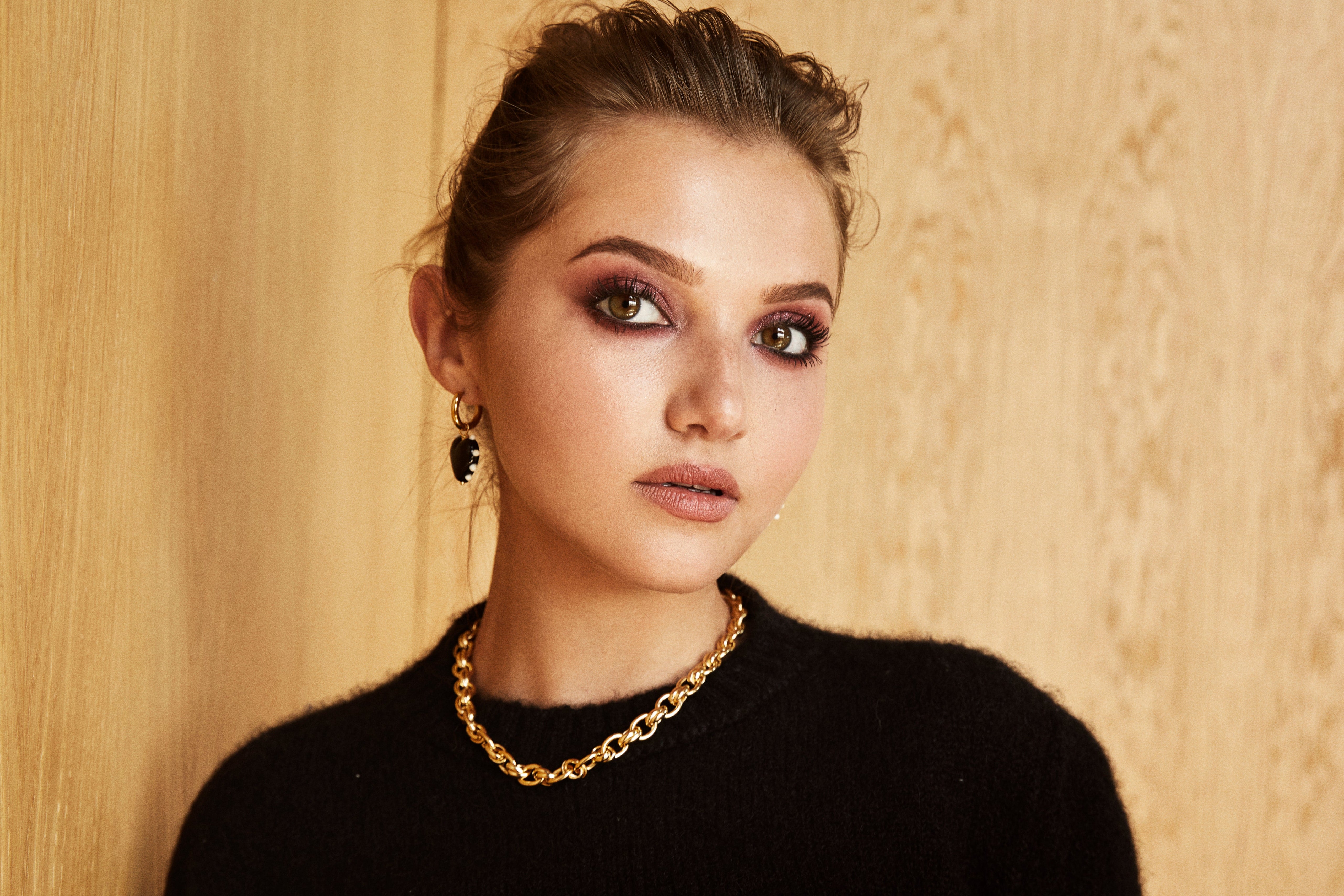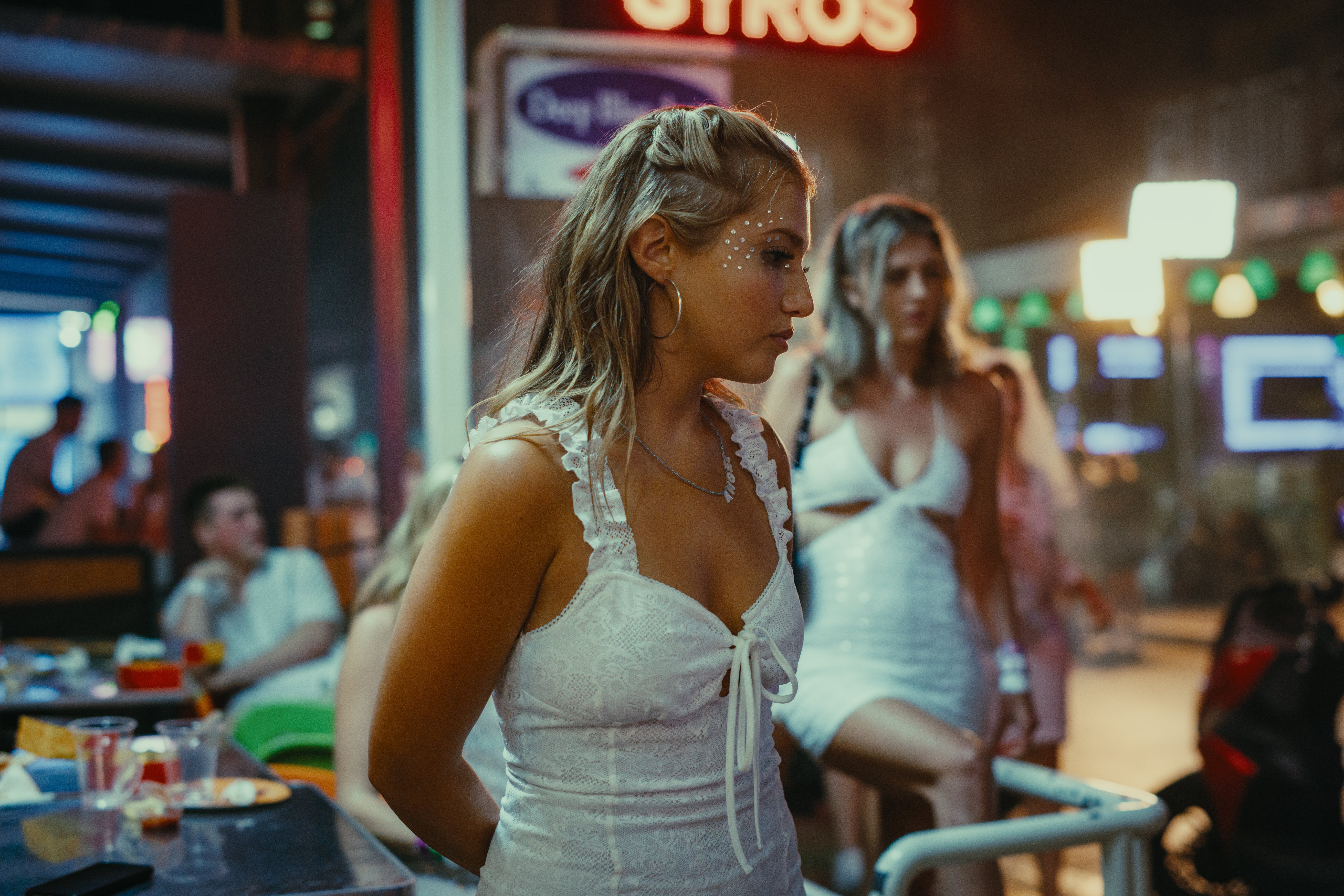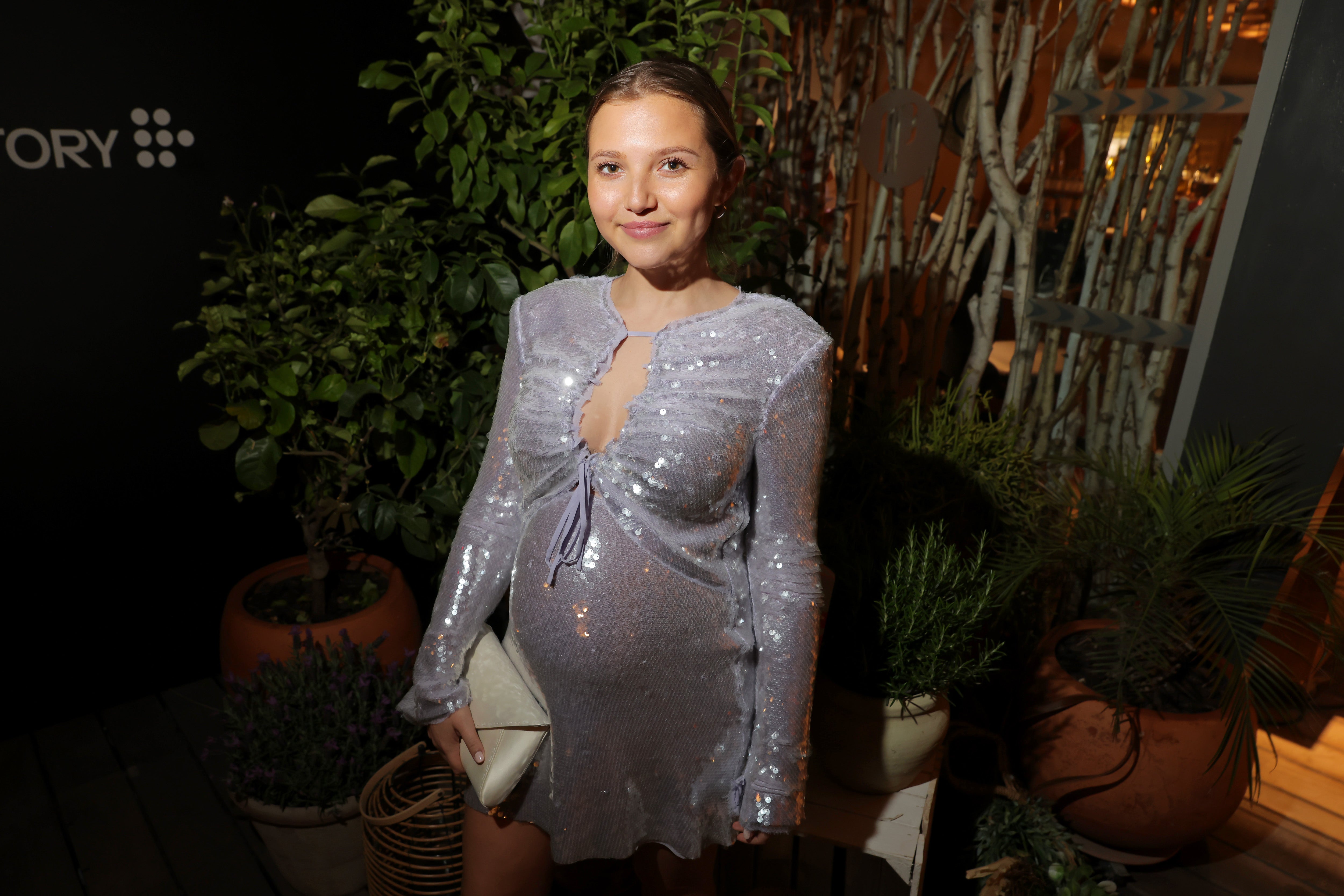Mia McKenna-Bruce on her breakout role in How to Have Sex: ‘I was six months pregnant at Cannes – it was pretty mental’
The 26-year-old rising star plays a teenage girl growing up too fast in the Malia-set party film. She tells Ellie Harrison about filming the Cannes sensation and what it’s like to have the biggest moments in her life and career collide


Your support helps us to tell the story
From reproductive rights to climate change to Big Tech, The Independent is on the ground when the story is developing. Whether it's investigating the financials of Elon Musk's pro-Trump PAC or producing our latest documentary, 'The A Word', which shines a light on the American women fighting for reproductive rights, we know how important it is to parse out the facts from the messaging.
At such a critical moment in US history, we need reporters on the ground. Your donation allows us to keep sending journalists to speak to both sides of the story.
The Independent is trusted by Americans across the entire political spectrum. And unlike many other quality news outlets, we choose not to lock Americans out of our reporting and analysis with paywalls. We believe quality journalism should be available to everyone, paid for by those who can afford it.
Your support makes all the difference.At Cannes this spring, How to Have Sex was the film on everyone’s lips. The sweaty, sad, sun-drenched British indie flick, about three 16-year-old girls on a rites-of-passage party holiday in Malia, Greece, won the French film festival’s Un Certain Regard prize. John C Reilly, jury president of the arthouse award, said the drama “brings us closer to understanding the human condition”. Vanity Fair called it “stunning”. And at the centre of it all was its breakout star, Mia McKenna-Bruce, by this point six months pregnant and sporting on the red carpet a baby bump covered in sequins. “It was pretty mental,” she says. “I felt like a real-life disco ball. Despite carrying around a watermelon, I felt as good as I could.”
Good, and just a little overwhelmed. The two most significant events in McKenna-Bruce’s career and personal life were colliding. After eight years on the child cast of the CBBC show Tracy Beaker Returns and its spinoff The Dumping Ground, and promising turns on Netflix’s wry Jane Austen adaptation Persuasion and cancer drama Kindling, How To Have Sex was her first proper star moment. And she was about to become a first-time mother. “I don’t do things by halves,” the 26-year-old tells me with a husky laugh, as she thinks back on her life a few months ago. “It was really surreal. Even still, I think, ‘What on earth?’”
We meet in October in the ornate dining room of a London hotel. She’s having an oat latte, her 5ft frame enveloped in a soft grey tracksuit. Her baby boy, born six weeks ago, is upstairs with his dad Tom, McKenna-Bruce’s fiancé. “I fell pregnant like a month after we wrapped,” she says, “otherwise that would have been really intense, because there were a lot of party scenes where I was dancing around, having to play drunk.”
How to Have Sex, the debut feature from London director Molly Manning Walker, is a blistering coming-of-age film that speaks to current anxieties around sex and consent. When we meet McKenna-Bruce’s firecracker Tara and her teenage friends, they are a giddy, squealing trio, desperate to kick off their first girls’ holiday and snog as many boys as humanly possible. They hit the strip in the Greek party town. They dance. They vomit. They wash away the taste with fluorescent shots. They pee between wheelie bins. They sleep. They soak up all the booze with crisps for breakfast. And repeat. But as the film goes on, a stillness creeps in. Underneath the girls’ brash, boisterous confidence, there’s a fragility. Tara succeeds in her mission to lose her virginity, but it isn’t what she’d imagined. It feels wrong somehow, as though she’s been violated. McKenna-Bruce is magnificent in the role, perfectly capturing the delirium and confusion of a girl yanked into womanhood too fast and too hard.
“We shot all of the party stuff in the first two weeks, like back-to-back party, party, party, party, party,” says McKenna-Bruce, “and then we got into the aftermath of what happened after that. So I could physically feel the complete shift.” The film was shot on location in Malia, a resort trampled by off-their-head British teenagers every summer, just as the height of the 2022 season was ending. In order to act plastered, McKenna-Bruce and her co-stars would spin around over and over before action was called. “We must have looked like absolute nutters to anyone who saw,” she says. Some of the time they overlapped with actual holidaymakers, and there was one scene shot in a chip shop at night that proved tricky to film, because hungry, inebriated clubbers were trying to get their carb fix. “I can just imagine them waking up the next morning like, ‘Guys, were we in a film last night or something?’” says McKenna-Bruce.
While there is plenty of joy to be found in How to Have Sex, audiences have been coming away from this boozy film feeling sobered, thanks to the issues it raises around consent. “I expected the viewers to be young people,” says McKenna-Bruce, “but generations above mine have been coming forward and saying that they can relate to this story, and that they’ve been pushing those feelings down for years and years and years until they’ve seen this film. And now they finally feel like they can talk about it. It’s scary and insane that there are so many people who have stories very close to Tara’s.”
The film is careful not to place the blame on its male characters, and Walker has spoken about how she wants to demonstrate, in her work, that society has a deeply ingrained problem with how we raise boys. “It’s the way that society has brought them up,” she told The Guardian last month. “‘Be a strong man. You’ve got to take the lead, and you’ve got to know what you’re doing.’”
McKenna-Bruce agrees that it’s too simplistic to blame the boys in How to Have Sex. “Because otherwise, it’s very easy for people to watch and go, ‘Oh, they’re a monster,’ and therefore shut off and not relate to that person because it’s an extreme version.” In one scene Tara has sex with a guy on the beach. “We see Tara say ‘no’ multiple times before she says ‘yes’,” says McKenna-Bruce. “The ‘yes’ was taken as a final answer, but the multiple ‘nos’ leading up to it weren’t. Consent isn’t binary, it’s not yes or no. As human beings, we have way more than our words, so make sure you’re taking in another person as a whole, and not just what they’re saying.”

The new mother has been thinking a lot about how to raise a boy in the era of misogynistic influencers such as Andrew Tate. “I feel very lucky in that [my son] is being raised in a family of a lot of women,” she says. “He’s the first boy in our family pretty much. So he has a lot of positive, strong women influencing him.”

Watch Apple TV+ free for 7 days
New subscribers only. £8.99/mo. after free trial. Plan auto-renews until cancelled

Watch Apple TV+ free for 7 days
New subscribers only. £8.99/mo. after free trial. Plan auto-renews until cancelled
Like most millennial women, McKenna-Bruce, who grew up in southeast London, went on a Malia-adjacent trip of her own when she was 18: the Ibiza strip. “We were in this all-inclusive hotel and obviously, especially because it’s Ibiza, everyone was sat around looking very, you know, cool,” she says. “And then there was us lot in the pool, trying to do a human pyramid. I’m on the top because I’m really small. I go flying off and everyone else around the pool is looking at us like, ‘This isn’t for you. Not cool guys.’” This scene could be plucked straight from How to Have Sex. In the film, Tara is at her happiest when, well, playing. She’s still a kid. “I look back on who I was at 16 and I’m like, ‘Why did I think I knew everything?’” says McKenna-Bruce. “I had no idea. And I’m really small and I look young for my age, so I always felt like I had to try to seem older, and make up for being small with being overtly confident and being that source of energy. So I can see exactly where Tara’s desperation comes from to prove herself.”
McKenna-Bruce has always had a lot of energy. Her mum tried to help her channel it by putting her into dance classes at the age of two. But she decided she wanted to be an actor a few years later after having her little mind blown while watching Titanic. “After that, I became obsessed with Shirley Temple,” she says, “and thought I basically had to imitate her to be an actor.” She went around with an American accent between the ages of five and eight. Then came her first acting job in 2006, as a ballet girl in the Billy Elliot musical in London. It required a Geordie accent, so she left the Shirley twang behind.
In 2010, McKenna-Bruce was cast as the irrepressible Tee Taylor in Tracy Beaker Returns and, in 2013, its spinoff The Dumping Ground. Between the ages of 10 and 18, those shows were her life. “We filmed in Newcastle for six months every year, so we had to live away from home,” she says. “I lived with chaperones, it was like being in a real-life dumping ground, 13 kids all together. Chaos.” When she finished, she found re-entering the industry as an adult bewildering. She was rejected audition after audition. “I ended up quitting,” she says, “leaving my agent and everything. I was like, ‘I don’t think I can keep doing this. I don’t know how to do it as an adult. I’ve never trained and I’m up against people who have been to drama school, and I have no idea.’”

McKenna-Bruce didn’t know what to do, so she went to Australia and got a job at a call centre. That lasted seven months, before she decided to come back to the UK, get an agent and do drama workshops on a Saturday. By this point, she was 19. “Even when I came back to it, there was still a lot of rejection,” she says, adding that knock-backs as an actor are so difficult because you have to “wear your heart on your sleeve and be emotionally accessible, but also have a really thick skin”. “Maybe two years ago now, I hit that wall again where I wasn’t sure if I could keep doing this to myself. Then I read Happy by Derren Brown, and he talks about how you can only worry about what’s in your control, and there was just this switch in me, and I thought ‘Yeah, I can persevere with this. I can do it.’”
Now, she says, she feels content. She doesn’t have anything solid in the pipeline, but is reading scripts. “For the first time, I feel very at peace. Normally I need to know what’s next, but I don’t know if it’s the baby, I don’t know if it’s the success of this film, but I feel really relaxed.” She smiles. “I’m excited to be in the unknown.”
‘How to Have Sex’ is out now in cinemas
Join our commenting forum
Join thought-provoking conversations, follow other Independent readers and see their replies
Comments